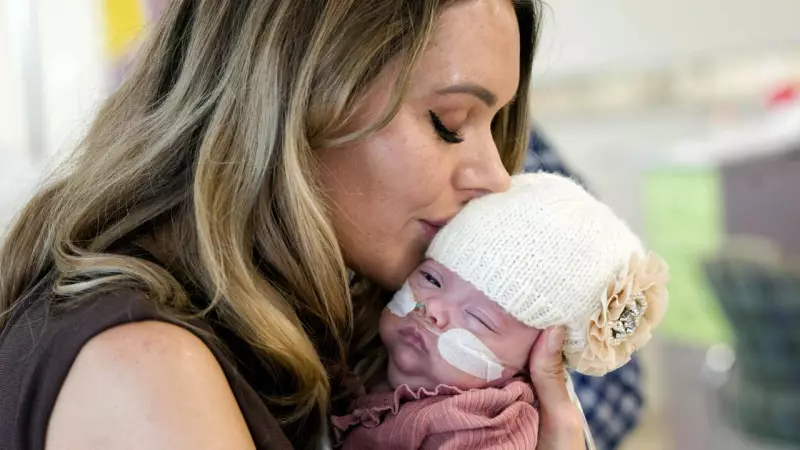
In an extraordinary medical achievement that has captured national attention, a Townsville baby has become Australia's most premature surviving infant after being born at just 21 weeks gestation. Stevie O'Reilly's remarkable survival story represents a significant milestone in neonatal medicine and offers hope to families facing similar challenges.
A Miraculous Arrival Against All Odds
Stevie O'Reilly entered the world at Townsville University Hospital on an undisclosed date, weighing a mere 410 grams - less than a can of soft drink. Her birth occurred at exactly 21 weeks gestation, shattering previous Australian survival records for premature infants. Medical experts typically consider 22 weeks as the threshold of viability, making Stevie's survival particularly remarkable.
Her mother, Shae O'Reilly, had experienced a completely normal pregnancy until suddenly going into premature labor. The family faced the devastating reality that most babies born this early don't survive, and those who do often face significant health challenges. "We were preparing for the worst," Shae recounted, describing the emotional rollercoaster of delivering a baby at what many consider the edge of medical possibility.
The Medical Marathon in Neonatal Intensive Care
Stevie's journey required an extensive stay in the Neonatal Intensive Care Unit (NICU) at Townsville University Hospital, where she received around-the-clock specialized medical attention. The tiny infant spent more than five months in hospital care, facing numerous medical complications common to micro-premature babies.
Dr. Anthony Bell, the Director of Neonatology at the hospital, emphasized the significance of Stevie's survival. "This case pushes the boundaries of what we thought was possible in neonatal care," he stated. The medical team employed cutting-edge techniques and technology to support Stevie's underdeveloped organs, particularly her lungs, which weren't ready to function independently.
Stevie required respiratory support for 141 days and underwent treatment for a heart condition common in premature infants. Her care team monitored her progress meticulously, adjusting treatments as she slowly grew stronger week by week.
Coming Home and Looking Forward
The emotional moment when Stevie finally left the hospital marked a victory for her family and the medical team that had fought for her survival. While she continues to require oxygen support at home and faces ongoing medical monitoring, her progress has exceeded all expectations.
Shae O'Reilly expressed profound gratitude to the medical staff, noting that without their expertise and dedication, Stevie wouldn't have survived. The family's experience has highlighted the incredible advances in neonatal medicine and the importance of specialized regional healthcare facilities like Townsville University Hospital.
This record-breaking case has significant implications for neonatal care standards across Australia and offers new hope for families facing extremely premature births. While each case remains unique, Stevie's story demonstrates that with advanced medical intervention and dedicated care, outcomes for micro-premature infants continue to improve.





